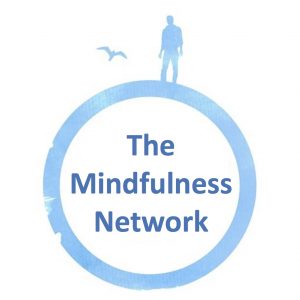
Our Business Manager, Ken Lunn, reflects back on 2019 and his time at The Mindfulness Network:
The seeds sown in the last year lie dormant in the ground, and we wait for the earth to warm. It is a natural time for reflection and contemplation. This year I will be stepping down from my role as business manager for The Mindfulness Network (MN), but I will continue to engage and support the organisation as a trustee and chair, and as a business and IT advisor. So, this is the time for me to look back a little and consider what next.
It is just over three years since Rebecca Crane invited me to assist with the MN. At that point my only knowledge of the MN was in respect to the invoices that came from them for my supervision, and like many I confused it with the UK Network of Mindfulness-Based Teacher Training Organisations (now known as BAMBA). Then it was a small community interest company with almost no staff, a healthy-looking bank balance, but a set of commitments that looked challenging. We needed to introduce some modern accounting systems, sort out the website, change how we managed supervision operationally, and develop the retreat programme quickly.
The MN was originally formed in 2012 in response to the training programme at Exeter University needing to find a home for services that did not fit neatly within a higher education model – primarily this was supervision for mindfulness teachers, and subsequently it incorporated the same for Bangor University (BU). BU also wanted to outsource its retreats, which was the situation in the autumn of 2016 when I was approached to help. This response to challenges is a theme that underpins the MN.
The retreats in 2017 all under-recruited and lost money for a variety of reasons, and it was 2018 before we had a programme that started to fill and offer something the community appreciated with huge thanks to Bridgette and Anna who were recruited to manage that programme. We also had some challenges around changing the operational side of supervision while developing and maintaining the quality and scope of our team of supervisors.
In the summer of 2017, we were approached by Bangor University to consider whether we could take on the Centre for Mindfulness Research’s (CMRP’s) Continuing Personal and Professional Development (CPPD) Programme, which included their flagship Teacher Training Pathway (TTP) and standalone training courses. Alison tentatively broached the subject on a walk around Chester city walls one evening at the CMRP conference; walks with Alison have developed a legendary status in the MN. We had little time to make our mind up. On the one hand we were working hard to develop the retreat programme, and our short term cashflow was not good. As a small organisation we had little by way of reserves, no spare resource, and minimal staffing. On the other hand, if the CPPD programme did not survive then our retreats and supervision would be severely affected. It was Hobson’s Choice really. By the end of our walk we had made up our minds. A cautious yes was returned, and then began a long dialogue with the University to explore possibilities.
The first obstacle was our legal situation as a community interest company. If we took on the training, we would have to add VAT which would increase prices considerably. It soon became clear that our best route forward was to become a charity. Irrespective of whether we would be able to take on the CPPD programme, it made sense to become a charity. And so began a stream of work to develop a charitable constitution and apply to the Charity Commission. This took over six months to complete, and we became a charity in April 2018.
We needed to formalise our planning to have a constructive dialogue with the University, and we produced our first formal business plan. In November 2017 we met with senior management at the University, and it was agreed that we would work towards a collaborative agreement to take on the CPPD programme from 1 August 2018. Then began six months of discussion that resulted in a formal, legal agreement in July 2018. The University were, and continue to be supportive, but it was clear even then that the University authorities would not keep CPPD in-house.
All this was going on while we uplifted our processes and accounting, developed the retreat programme, updated our IT and developed our websites. We’ve been asked a number of times why we have done some things (e.g. why we ended up with five distinct websites), and the honest answer is that we often had to do the quickest and easiest things to make things happen. At the end of 2017 we had about the equivalent of one and a half full time persons on payroll, and an awful lot of goodwill, volunteer effort and commitment.
On 1 August 2018 we started with the TTP programme, and had a new staff team coming on stream to manage and develop it. At the same time we were having our busiest time ever for retreats, and had our biggest retreat ever with 48 participants. Again, through huge commitment from everyone we got over the first hurdles. In November 2018 we had a CMRP teachers’ meeting at Trigonos where there was a mixture of surprise that we had actually made the transition and a natural concern over whether it all would work out. A year further on, there is a general sense of surprise and optimism over what we have achieved, and that was reflected at the November 2019 CMRP teachers’ meeting where the focus was more on how we develop than how we survive.
Along with the CPPD programme came a number of other functions that had once been hosted by CMRP. There is a programme in Iceland and Spain, some commitments to the NHS, and various other CPPD activities that we did not realise were so extensive. CMRP had been supporting compassion retreats and training, and that came our way too alongside some compassion training that we were already developing and collaborating on. And there was a distance learning MBSR course. These all involved something of a scramble to incorporate.
There have been many challenges, and there will be many more to come. As business manager, one of my main concerns has been to keep the organisation viable financially. We have emerged as an unusual organisation with no fixed assets and staff all home based. We are currently operating around break even, but we managed through all the transition with no need for financial assistance – a generous loan was given by one of the community but we managed to hardly draw upon it and returned it quickly. We are putting in place improvements in systems to help us reduce back office effort and allow us to grow without increasing our costs. There is always a tension over prices of events, and we have managed to bring down retreats considerably in the last three years, though in the retreat world we are competing with organisations that have different cost bases and do not pay their teachers a salary, but work on a dana basis (donations/generosity from participants).
So, as we begin 2020, we have lots to celebrate. We now have a sizeable team of committed and capable staff, our supervision team (old and new), retreat leads, and trainers. Somehow, we have survived a number of huge challenges, and we have a comprehensive and exciting programme of events ready to launch for 2020/21. We have a great new team of trustees who are increasingly engaged with our work.
So, what is coming up?
Firstly, we have a new business director coming on board, who will take on a lot of my activities. I am looking forward to having more time to engage with trustees and to engage with some more strategic work. Other demands in life mean that it is timely for me this is happening, and I have my own teaching activities that have been a little neglected in the last two years.
I think we have a number of challenges to address in the coming year. It is already starting to happen, and we need to do more to bring together our processes and make our offerings more holistic; for good reasons we have not changed too much as we integrated the CPPD programme. Early in 2020 we hope to re-launch our web-presence to provide a more integrated experience. We need to develop a sense of community with our trainees, supervisees, retreatants etc and find ways to facilitate that. We need to widen access, and rethink our offerings in that light: how do we diversify our reach and how do we make our offerings more accessible? We need to build financial security in, so that we can survive lean times and also develop faster during times of surplus. We need to retain and develop our staff. We need to examine our venues with a view to improving safety, diversity and accessibility while reducing costs.
I remember about 18 months ago discussing with a friend what we were doing, and he quoted Goethe: “There is one elementary truth, the ignorance of which kills countless ideas and splendid plans, that the moment one definitely commits oneself that Providence moves, too. Whatever you can do or dream you can do, begin it. Boldness has genius, power, and magic in it. Begin it now.” This seems to summarise my experience of the MN over the last three years. We could, in the summer of 2017, have been more cautious or even turned down the prospect that arrived, but we treated the risk as also an opportunity as we could see its importance and the lack of alternative.
And last, but not least, it is a joy to work with the MN team. I have never had the pleasure of working with such a committed and selfless team, despite decades as a manager in a number of contexts. There is an ingenuity in the team that overcomes obstacles in a fuss-free way; earlier we had our weekly coffee break over video – the kettles went on all over England and Wales, and we all chatted for half an hour about house moves, what we did at the weekend, and plans for Christmas, as if we were in the same room. Then we went our separate ways, and I got a couple of emails about a report I sent out earlier.

Who really knows how mindfulness will unfold in the UK? And how the MN will support that community in the long term. Politics, the environment, society, economics, all offer significant barriers to such a movement, but the commitment of so many to a process of personal development is remarkable, and the impact of mindfulness on society is something we are only just beginning to explore. In fact, the MN has arisen largely out of problems that arose elsewhere, and the origins of MBSR are in response to great human suffering. As in Rumi’s poem, the Guest House, we have learnt to stand at the door laughing and welcome our guests in (even if the laugher is rather nervous at times!).
I look forward to 2020 with enthusiasm.
Ken Lunn




